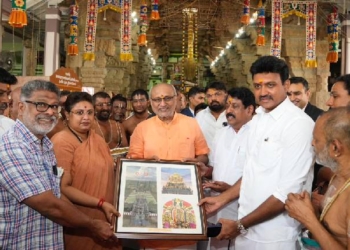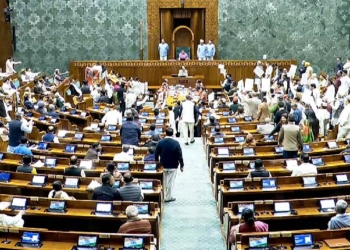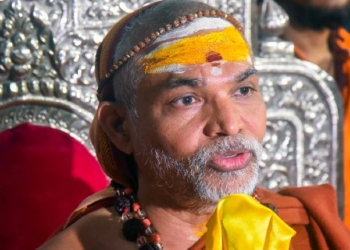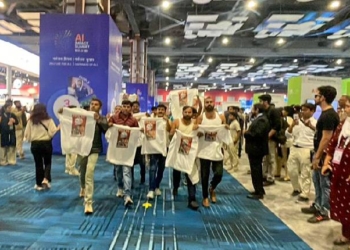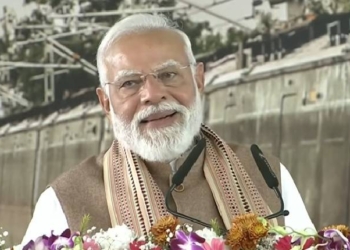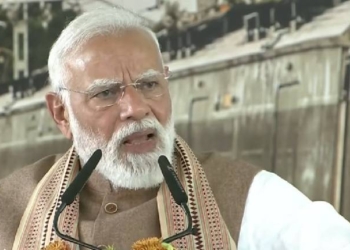New Delhi: The Supreme Court on Monday deferred hearing till December 1 on pleas concerning the Kashi Vishwanath-Gyanvapi mosque land title dispute.
A Bench headed by Chief Justice of India DY Chandrachud and Justices JB Pardiwala and Manoj Misra could not take up the matter for hearing due to paucity of time. The Bench asked the parties to file a one-page note in the meantime.
The Anjuman Intezamia Masjid Committee, which manages Gyanvapi Mosque in Varanasi, has filed three different pleas in the Supreme Court.
In its first petition, an objection has been made against the appointment of a court commissioner to survey the Gyanvapi-Gauri Shringar complex saying that the order by the Varanasi court is ex-facie without jurisdiction.
Senior Advocate Huzefa Ahmadi, appearing for the mosque committee, said that the appointment of commissioner is not “correct” in terms of Order XXVI Rule 9 of CPC (Code of Civil Procedure).
The second Special Leave Petition challenges the order of the Allahabad High Court allowing the ASI (Archaeological Survey of India) to survey the premises of the Gyanvapi mosque, except for ‘wuzu khana’.
The Supreme Court on August 4 had refused to pass any interim order staying the survey process after Solicitor General Tushar Mehta undertook that no excavation would be made at the site.
However, the apex court had earlier stayed another order of the High Court directing the ASI to carry out a “scientific survey” of the “Shivling” purportedly discovered in the Gyanvapi mosque to ascertain its age.
In its third petition, the management committee has questioned the decision of the Allahabad High Court upholding maintainability of Hindu worshippers’ suit filed before the district court.
In its impugned order passed on May 31, the High Court had dismissed the revision application filed against the rejection of application under Order VII, Rule 11 of the Code of Civil Procedure (CPC) by the District Judge.
The district court had held that the suit seeking relief of the ‘right to worship’ the deities located in the disputed property is maintainable and is not barred under the Places of Worship Act, 1991, Waqf Act, 1995, or the Uttar Pradesh Sri Kashi Vishwanath Temple Act.
Recently, the top court had refused to interfere with a decision taken by the Chief Justice of the Allahabad High Court on the administrative side withdrawing the cases concerning the dispute from the single-judge Bench of Justice Prakash Padia.
In 2021, Hindu plaintiffs had instituted a suit in Varanasi court demanding the right of unhindered worship at the Maa Shringar Gauri Sthal. The mosque management committee, in its reply, refuted that the mosque was built over a temple, maintaining the structure at the spot was always a mosque.
(IANS)





